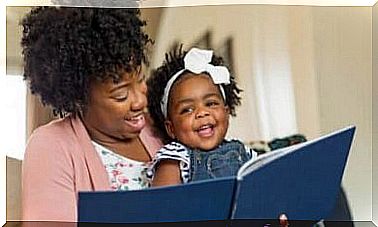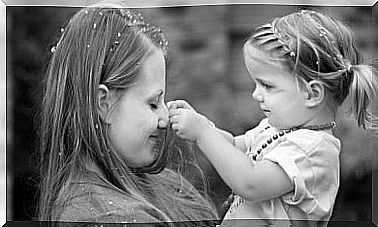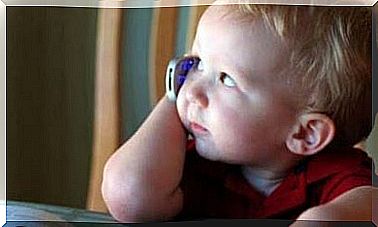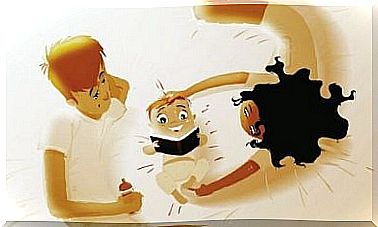When Children Are Afraid To Be Alone
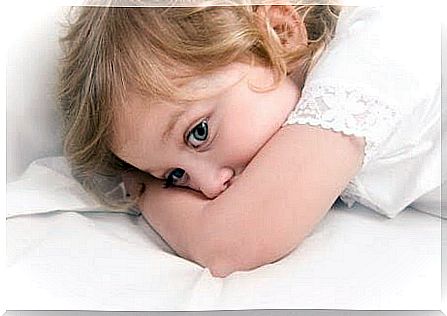
Children can feel intense emotions from a very young age and these emotions stay with us for the rest of our lives. They give us the skills we need to solve problems that arise along the way. Today we will focus on when children are afraid of being alone.
Fear helps us to avoid danger – whether the danger is real or imaginary – and to act with caution.
When do children become afraid of being alone?
All people are born with instinctive fears that, although they may seem difficult at first, are necessary for survival.
Through fear, we can avoid risky situations that put our lives at risk. An individual’s fears and anxieties vary depending on age and personality type. Some children are more likely to be scared than others.
Normally, the fear of being alone develops in children between 2 and 4 years of age. It arises at the same time as many other fears, e.g. for animals, masks, costumes, the dark, etc.
However, this fear, which is so common among young children, has been shown to gradually disappear over time. Children want to feel older and one way they can do that is by doing things on their own.
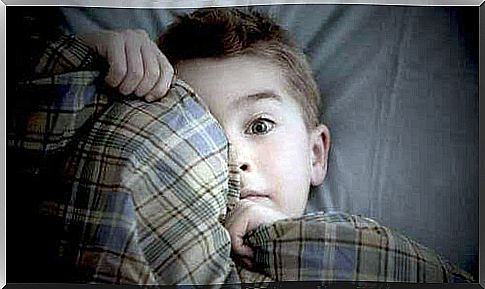
How to help children who are afraid of being alone
When the fear of being alone takes over in a child, it is important to help him or her learn to appreciate lonely moments. In other words, gradually give your child opportunities to spend short moments alone. The moments should not be very long, otherwise you can make your child’s fears worse.
Below is a list of suggestions for things that can help your children overcome their fear of being alone:
- Give them time to play alone in their rooms without your constant presence.
- Let your children perform tasks on their own. This can be something as simple as buying something in the grocery store or going to school on your own. The most important thing is that you let them know that they have your support.
- Prepare your children for new experiences. For example, you can read a fairy tale or story.
- Talk to your children about their concerns and let them talk about their fears.
- Teach your children to recognize their emotions and help them control them in a healthy way.
- Do not force your children to face their fears on their own. It can lead to increased anxiety and worry.
- Do not diminish what your children feel and experience. It is important to remember that you can not stop your children from feeling certain emotions. All people have the right to express their feelings, including fear.
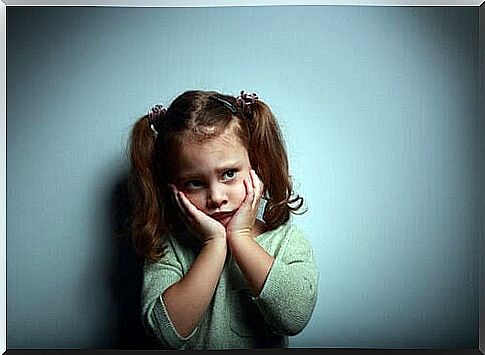
How do children who are afraid react?
When babies are scared, they often get scared and cry. Later, in addition to crying, they try to avoid the cause of their fear at all costs. They also seek the company of an adult to protect them.
Sometimes young children simply experience some form of change in their normal behavior. For example, they may show aggression or become outspoken. Some children urinate in bed or resume behaviors from when they were younger, such as sucking on the thumb, when they are scared.
A child’s fears do not necessarily have to be a cause for concern on the part of the parents. However, if any of the following apply to your child, you should consider seeking help:
- Intense and persistent fear
- Your child’s fears hinder him or her in his or her development
- Your child’s fears affect his or her daily life, schooling, family, etc.
- You and your child have a hard time deciding how to handle the situation
It can be difficult for children to overcome a fear of being alone. But when they understand that they need to solve things on their own, they will realize that they can handle it. Adult support and guidance is therefore very important.
But if someone else always does everything for them, they will always expect others to solve their problems for them.
Children’s fears can actually turn into an enriching experience for them over time. When their fear gradually disappears, it is replaced with a sense of strength and knowledge, and it gives them the resources they need to face any situation they may encounter.
